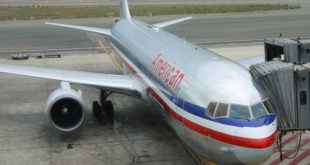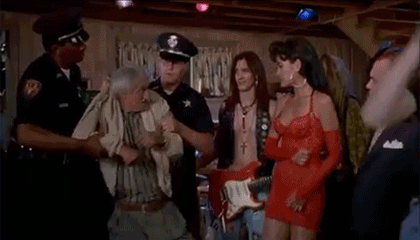There are two major plot twists in the Allegiant Air case.
As a reminder, the flight took off late from Vegas on Monday, July 27th and proceeded to fly to Fargo, despite the airport being closed.
When asked to circle until they cleared the runway, the pilot said he had “bingo fuel” and needed to go down now.
The plane did not circle beforehand, so there was no way it could have burnt a lot of fuel in that short of a time. Â So the FAA investigated why the plane apparently had 3 minutes of fuel left.
But then it turns out there was a plot twist.
Let’s go back to when the pilot had “bingo” fuel.
According to Review Journal, when the plane landed, it had 42 minutes of fuel left.
So when the pilot said they had “bingo fuel,” he was either mischaracterizing what he had, or he had no idea how much fuel he had left.
So a plane declared a emergency landing and landed at a closed airport running practice exercises. Â Within a few minutes of arriving at the airport. Â With 42 minutes of fuel left.
So why would a seasoned pilot lie about or not be aware of what his fuel levels are at?
Here comes the second plot twist.
Neither pilot was a seasoned, regular pilot.
 Two Allegiant Air executives, the vice president of operations and the director of flight safety, were at the controls of the flight that made an emergency landing last week because it was nearly out of fuel.
Greg Baden, Allegiant’s vice president of operations, and Michael Wuerger, director of flight safety, government affairs and quality assurance, were flying Allegiant’s Flight 426 from McCarran International Airport to the Fargo, N.D., Hector International Airport on July 23.
A representative of Allegiant confirmed that Baden and Wuerger were flying the plane, adding that it is not uncommon for members of operations management to take flights to maintain their pilot status.
Now I understand flying along to keep up your pilot status–but allowing both pilots to be people who fly part time seems irresponsible.
Here are just a few points they missed on:
- They were unaware of how much fuel they had either at taking off and when landing
- OR they intentionally lied to air traffic control about how much they had
- They were unaware that Fargo airport was closed–despite the FAA issuing multiple warnings about that.
- They had an unnecessary emergency declared at the closed airport
Ultimately, it is up to the pilot to know how much fuel he has when departing and how much fuel he has when landing.
He is in charge of the craft, and it is the captain’s and co-pilot’s responsibilities to maintain the integrity of the flight.
It is their responsibilities to know if the airport they are flying to is open and it is their responsibilities to be the stewards of safety for every person on that plane.
No wonder people in the management of Allegiant Air were also trying to dial air traffic control and the pilots did not know the proper numbers to give them.
What I think happened is–two dude bros at Allegiant Air decided to take a joy ride together from Vegas to keep their pilot status, rather than traveling with a co-pilot who is more seasoned. Â Out of a disregard for the passengers, they preferred to fly together and committed basic errors regarding fuel, their (now closed) destination, and distances to nearby open airports.
They were flying a Mad Dog. Â They should have been aware of what they were getting into. Â They were not flying a Dash 8 they could put down anywhere. Â There were 140 passengers on the plane. Â This just feels completely irresponsible. Â And I feel more outraged than I did when the story originally broke.
What do you think?
 Le Chic Geek
Le Chic Geek





In my experience, most corporate executives can barely operate e-mail, so I think I’ll avoid airlines where they’re flying the planes.
Extremely irresponsible and absolutely ridiculous to put those passengers lives at risk.
Though I find this an interesting aviation story, I think whoever wrote this article, is as bad a writer as the pilots who flew the trip. I can’t recall a story as full of grammatical errors and poor English as this one. Please take a writing 101 course or get someone else to do the actual writing. Grade for this article: D minus.
English professor and Writing Center administrator here. You have a completely superfluous and bizarre comma in your first sentence (after “article”), and your sentence beginning “Please take. . .” is a run-on sentence of the kind my developmental English freshmen would write. I normally wouldn’t point these things out, but since you called grammar into question, I feel compelled.
Not to mention the odd simile:
“I think whoever wrote this article, is as bad a writer as the pilots who flew the trip.”
I didn’t realize the pilots who flew the trip were bad writers.
I think, but can’t tell for sure from your writing, that you’re misunderstanding what “bingo fuel” means. First, it’s not a civilian aviation term. I was never a pilot, but in my military career, my flyboy buddies used it to indicate the minimum reserves required to comfortably return to the carrier. They would sometimes fly past bingo fuel if operations required, knowing that they’d have to nurse the plane back as efficiently as possible.
Federal law/FAA regs (14CFR91.151) requires a minimum reserve of 45 minutes of fuel to be loaded in excess of that expected to get to one’s destination under VFR. So the non-standard unofficial term of “bingo fuel” that the pilot used would, to me, most probably be used to indicate that he had reached that reserve level.
So it makes perfect sense to me that he landed, shortly after declaring that he was at bingo fuel, with 42 minutes of fuel left. So he didn’t need to declare an emergency, but to be fair, ATC did tell him that was the only way he was going to land in Fargo.
I’m not suggesting that he’s not a relative idiot (including some of the things you cited such as not reading NOTAMs, using non-standard terms, etc), or that he shouldn’t be prohibited from ever sitting in the left hand seat of a commercial plane again, but in contrast to all the possible hypotheticals, it doesn’t sound to me that the actual situation was ever as dire as you and some of the press make it sound.
Sorry – the reference probably should have been to 19CFR91.167, but I’m willing to be corrected on that, too.
I see what you are saying, but the part that gets me is Fargo said they could land in twenty minutes, and the pilot told them that he doesn’t have twenty minutes.
Sure – I agree the pilot didn’t handle it well. But that doesn’t translate to actually putting the passengers in actual danger. My (admittedly) wild guess is that he knew he screwed up by not realizing the airport was closed, and he was trying to make sure he didn’t compound the error by burning half his remaining fuel in case something else caused a delay (kind of like I feel when the gas light comes on just after I pass an exit on a long stretch of highway – intellectually I know I have enough gas to make it to the next town, but the anxiety factor goes up by an order of magnitude).
I’m not excusing the pilot – he put himself in that position and it was stupid and he should pay the consequences. But given his apparently up-until-now successful career, I’m willing to believe that this was an anomaly. I certainly believe that he was still doing his best to ensure the safety of his passengers, given the situation he was in. It’s easy to demonize, especially when we can imagine horrible consequences. In the end, though, all the passengers made it to their destination safely in spite of the mistakes.
I agree that bingo fuel doesn’t mean zero fuel. But listening to the ATC recording, the pilot says he can’t fly the 70 miles to Grand Forks. That means he arrived at the Fargo terminal control area without the required diversion fuel +45 mins circling. He was way under — or thought he was — or didn’t know. All of which are unacceptable answers for an airline flight crew.
This is just my gut reaction, but I suspect that the pilots didn’t do in-flight fuel monitoring. (During flight, actual fuel burn is compared with planned/estimated fuel burn to be sure the fuel gauges are accurate, no leaks are happening, etc). That would be a failure of basic situational awareness – but I’d suspect they faked the paperwork after landing to cover the fact that they were talking about slot machines and Vegas girls instead of aviating.
Diversion fuel is not necessarily required in fair weather conditions under 19CFR91.167. There may be other legal/regulatory requirements, of course.
I don’t know what accepted industry practice is, though I suspect LCCs don’t stay LCCs if they’re transporting lots of extra fuel from one airport to another.
What idiots…and what a PR fiasco for Allegiant, which doesn’t need any more bad publicity. After the Allegiant pilots filed a complaint with the FAA to charge that Allegiant wasn’t maintaining its metal properly, among other issues, I tried to convince my husband not to fly LAX-Medford (OR) on the Allegiant nonstop last month. He did, but took another flight home on UA because of how bad the Allegiant flight was. Now, after sharing this story with him, he agrees that he’d never fly Allegiant again. This is an airline that clearly has the writing on the wall for a coming disaster. I can only hope that someone shuts this disaster-in-waiting airline down soon. And that no one continues to fly Allegiant to make that decision easier.
Let’s look at the dudebro Wuerger’s job title: Director of flight safety.
Wait, what?!?
I’ve not flown Allegiant, but now I know for sure that I never, ever will. I think their business model of flying leisure pax from underserved airports is brilliant. But they clearly have a lax, even dangerous management team. Both of those gentlemen need to put on leave (unpaid, in my opinion), and fired the moment the FAA report says what it should say: they are dangerously incompetent.
You might want to check around before you start chopping heads. The airport was NOT closed to Air Carriers.
EXC is NOTAM (Notice To Airmen) talk for EXCEPT. The pilots did a fine job.
KFAR HECTOR INTL
!FAR 07/020 FAR AD AIRPORT CLSD EXC SCHEDULED AIR CARRIERS DLY
1700-2200 1507231700-1507242200